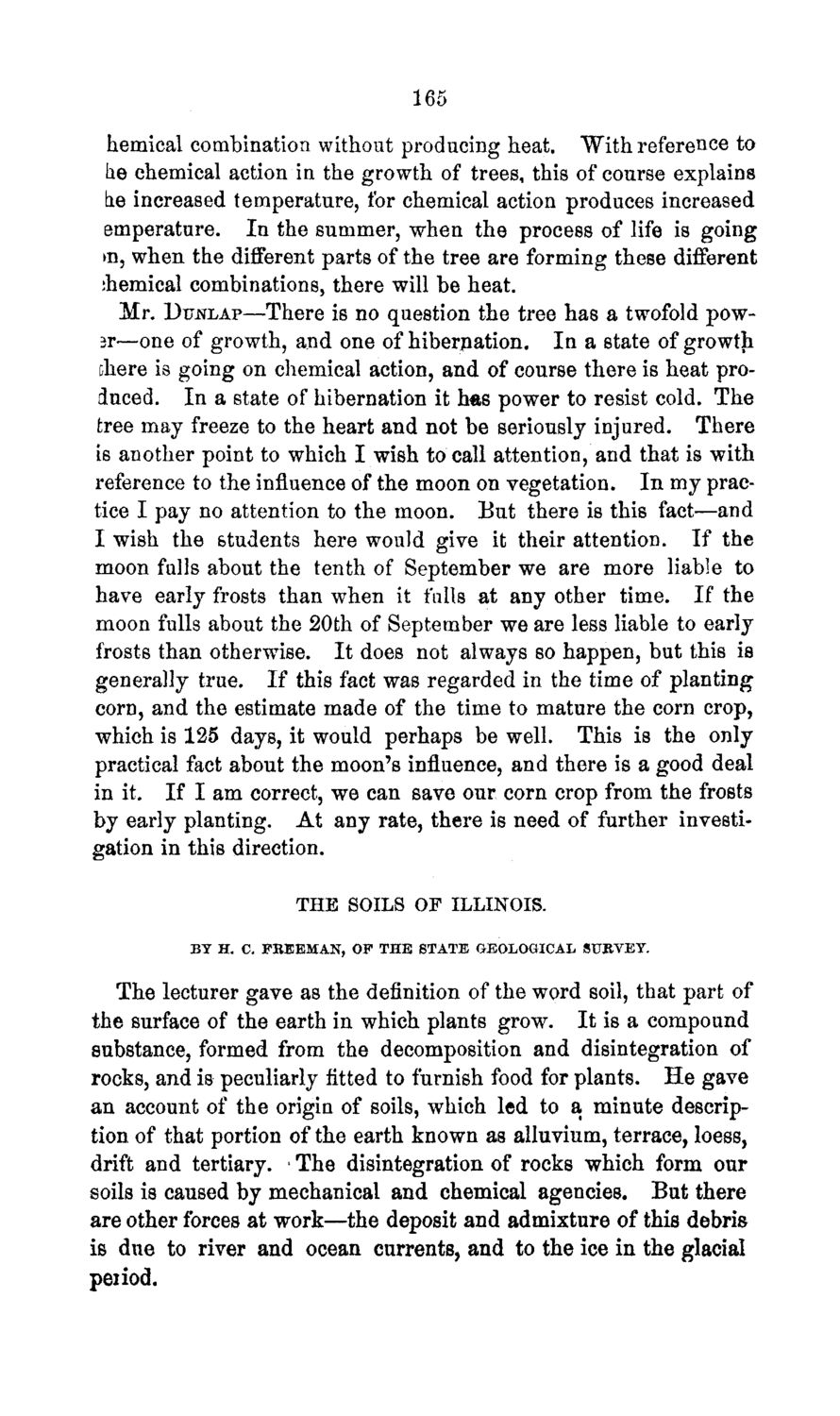| |
| |
Caption: Board of Trustees Minutes - 1869
This is a reduced-resolution page image for fast online browsing.

EXTRACTED TEXT FROM PAGE:
165 hemical combination without producing heat. With reference to lie chemical action in the growth of trees, this of course explains tie increased temperature, for chemical action produces increased emperature. In the summer, when the process of life is going >n, when the different parts of the tree are forming these different ihemical combinations, there will be heat. Mr. DUJSTLAP—There is no question the tree has a twofold pow3r—one of growth, and one of hibernation. In a state of growth there is going on chemical action, and of course there is heat produced. In a state of hibernation it h«s power to resist cold. The tree may freeze to the heart and not be seriously injured. There is another point to which I wish to call attention, and that is with reference to the influence of the moon on vegetation. In my practice I pay no attention to the moon. But there is this fact—and I wish the students here would give it their attention. If the moon fulls about the tenth of September we are more liable to have early frosts than when it fulls at any other time. If the moon fulls about the 20th of September we are less liable to early frosts than otherwise. It does not always so happen, but this is generally true. If this fact was regarded in the time of planting corn, and the estimate made of the time to mature the corn crop, which is 125 days, it would perhaps be well. This is the only practical fact about the moon's influence, and there is a good deal in it. If I am correct, we can save our corn crop from the frosts by early planting. At any rate, there is need of further investigation in this direction. THE SOILS OF ILLINOIS. BY H. C. FREEMAN, OF THE STATE GEOLOGICAL SURVEY. The lecturer gave as the definition of the word soil, that part of the surface of the earth in which plants grow. It is a compound substance, formed from the decomposition and disintegration of rocks, and is peculiarly fitted to furnish food for plants. He gave an account of the origin of soils, which led to a minute description of that portion of the earth known as alluvium, terrace, loess, drift and tertiary. «The disintegration of rocks which form our soils is caused by mechanical and chemical agencies. But there are other forces at work—the deposit and admixture of this debris is due to river and ocean currents, and to the ice in the glacial peiiod.
| |